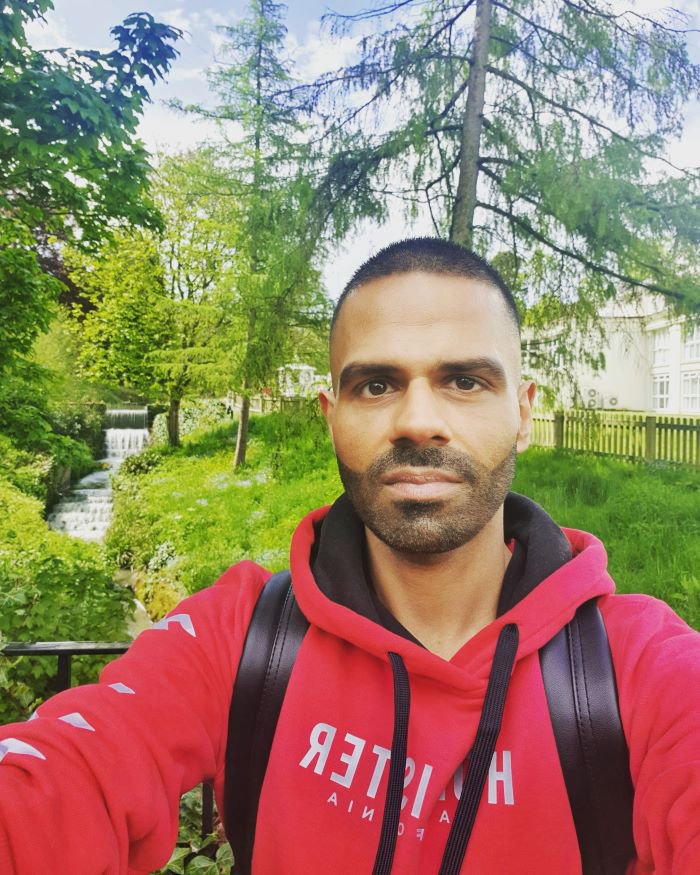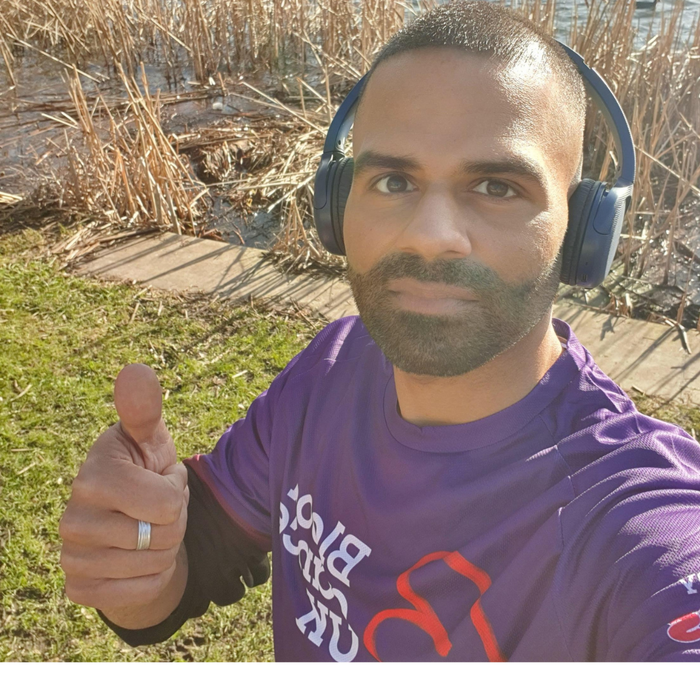When treatment affects fertility
When Sunny was diagnosed with non-Hodgkin lymphoma in 2019, he was told his treatment would affect his fertility. Here he talks about coming to terms with the news.

When I look back on my diagnosis of non-Hodgkin lymphoma, everything happened so quickly it was hard to really take it in. I had repeated visits to my GP and A&E before I finally had the tests I needed to diagnosis my cancer. When I finally got that diagnosis, I was already at stage 4. From that point on, everything happened really quickly. Due to the severe nature of my cancer, I was told they had to start treatment the same day, in just a few hours.
I was told I would need the most intense regime of chemotherapy possible, and that it would likely leave me infertile. That was devastating to hear, but there was so much else to consider and weigh up, that I had to put the fertility aspect of it to one side.
Because I was starting treatment literally that same day, there wasn’t time for me to see a fertility doctor or freeze my sperm.
It was only after I’d gone through treatment that I was really able to think about the impact it had on my fertility
I think that’s what I found really difficult, that I didn’t have time to digest the news or make an informed decision.
The saying goes ‘sleep on it’ when making a big decision, but not everyone with blood cancer is in the position to do that. If, like me, you have to start treatment quickly, you don’t have time to weigh up the options and think about what you want to do.
When you get diagnosed with cancer, your brain automatically goes into survival mode.
So at the time, nothing else really seems to matter too much, because your initial focus is ‘Am I going to get through this? Will I survive? How long have I got left?’ For me, all that took precedence over thinking about my fertility. And it was only afterwards that I’ve really had time to process it and learn to accept it.
Thinking about the future
I wasn’t in a relationship at the time, so it wasn’t something I had to discuss with a partner. But it’s something I’ve had to think about for the future if I meet someone new: how would I tell them about this? I hope that most people would be quite accepting of it.
At the moment, the affect treatment has had on my fertility is something I think about, but it’s usually at the back of my mind. I’ve tried to focus my attention on counting my blessings for how fortunate I am compared to others who’ve not survived through the cancer or treatment. I try to put things in perspective as much as I can. But I know it’s not always easy to come to terms with, especially for people who were planning a family when they were diagnosed.
I know there are other options out there for having a family, if that’s what I decide to do in the future, so that puts my mind at ease.

Coming from an ethnic minority background, subjects such as fertility tend to be a taboo subject, for both men and women. In my culture, it’s not spoken about enough. I’m quite an open person, so I don’t really have an issue talking about it, but I know a lot of people find it difficult to talk about. I think it’s really important to bring down those barriers and talk about it with other people, as it can be really helpful.
My advice to others
For anyone affected by infertility because of their treatment, I’d recommend talking to other people in the blood cancer community. Because you’ll meet people who are going through exactly what you’re going through, and you can support each other. I think that’s why things like the Blood Cancer UK forum are so great for anyone who may be struggling.

